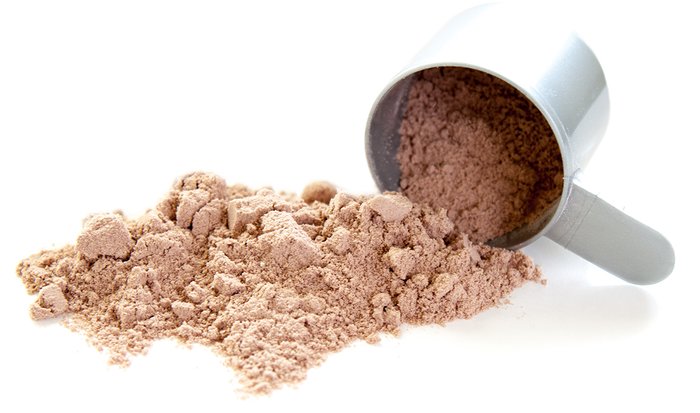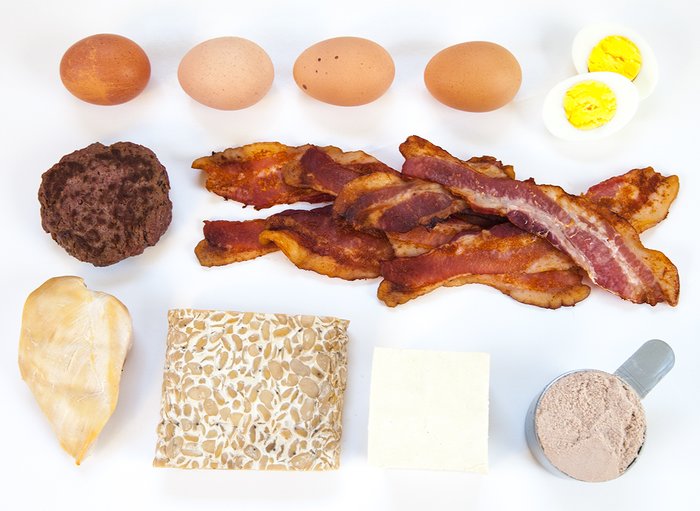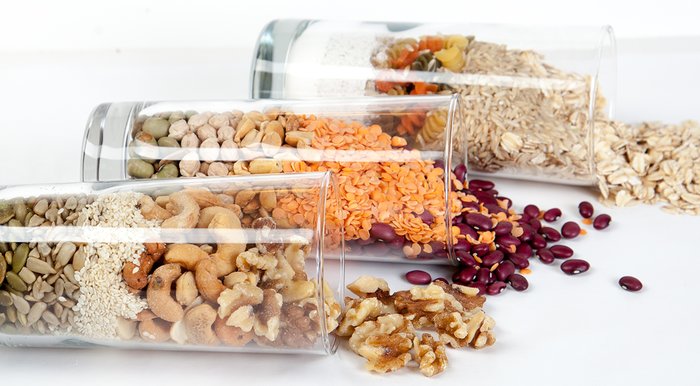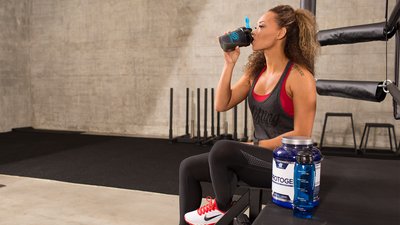You may know that protein is great for building muscle, but did you also know that it can help you lose weight? Current research shows that high-protein diets outshine low-protein diets when it comes to both building muscle and fat loss.[1] No matter your age or background, meat-eater or vegetarian, protein is a must-have for healthy, sustainable weight loss.
Here's why protein is crucial when losing weight, and how you can make sure you're getting enough!
The Case for Protein
I could throw a buffet's-worth of reasons to prioritize protein at you, but let's limit it to what are perhaps the four biggest for now:

- A high-protein diet provides the building blocks (amino acids) your body needs to maintain and build muscle. Make no mistake, muscle mass is crucial during fat loss! The more muscle you have, the more calories you burn throughout the day. Muscle also enables you to engage in more physical activity, which in turn burns more calories.
- When you eat calories in the form of protein, your body burns through as much as 20-35 percent of those calories in the process of digestion. This is called the "thermic effect" of food (TEF). That is far more than the 5 percent of calories burned by fat or the 5-15 percent required for carbs.
- Studies have also shown that a high-protein diet helps suppress appetite and may be easier to stick with than other diets.[2-3] And as any good nutritionist will tell you, the best diet for you is the one you can actually stay on.
- Protein may also help you with your weight-loss efforts by supporting healthy blood glucose levels, further helping you control hunger and feel clear-headed and functional, even when your calories might be relatively low.[4,5]
What do you mean by a "high-protein diet"?
You don't have to follow the stereotypical bodybuilder's diet—i.e., shakes and chicken breast three times a day—to get enough protein. Being on a high-protein diet means you're consuming between 0.6-1.0 grams of protein for every pound (or 1.3-2.3 grams per kilogram) you weigh. To put that another way, protein should make up about 25-45 percent of your daily caloric intake.[6]
Lean toward the higher end of that range if you're training on a regular basis, are fairly lean (less than 20% body fat for a female or 10 percent for a male), or are cutting calories more aggressively, such as 20 percent or more below your normal caloric intake. For a 140-pound female, that could equate to as much as 140 grams a day. A 180-pound male would be looking at as much as 180 grams.
You can shoot more toward the lower end of the range if you're not training regularly, have a higher body-fat percentage (more than 20% body fat for a female or 10% for a male), or are cutting calories more conservatively (less than 20 percent reduction from maintenance needs). For a 140-pound female, that could mean just 84 grams of protein a day, or 110 grams for a 180-pound male.
But that number might not mean a lot to you. If you're wondering what that 84-110 grams looks like in a wide variety of protein sources, check out Bodybuilding.com's visual guide to measuring your macros.
What are the best sources of protein?
The best food sources of protein for fat loss are nutrient-rich and "complete." This means they contain all the essential amino acids in adequate amounts. It's also worth prioritizing proteins that are easily digested and fully absorbed in the body.

Based on the Digestible Indispensable Amino Acid Score (DIAAS) method, which measures the digestion of amino acids, the five best sources of quality animal protein are as follows:
- Eggs
- Whey protein
- Grass-fed beef, bison, and game meats
- Fish and seafood, especially wild salmon, wild cod, mackerel, sardines, shrimp, mussels, scallops, oysters, and tilapia
- Chicken and poultry
You may have heard that most plant-based protein sources aren't "complete," but that's not a difficult hurdle to overcome. They can still provide you with all of the necessary amino acids if you consume complementary, plant-based proteins. To maximize fat loss, choose plant-based sources that have the most protein per calorie and which provide the combination of amino acids your body needs.[7] Good sources include:
- Protein powders like soy isolate, pea protein, and plant-based blends
- Soy products like tempeh and tofu
- Seitan, textured vegetable protein (TVP), veggie burgers and dogs
- Beans, lentils, and peas
- Whole grains like bulgur, quinoa, and wheat
- Seeds like chia, hemp, pumpkin, squash, and sunflower
What if My Diet Is Low on Carbs?
Even if—or maybe especially if—you're trying to "train low" by reducing your carb intake, protein should remain a high priority at every meal. If your diet is giving you the low-blood-sugar blues, this is doubly important.
Spread your protein as evenly as you can throughout your meals to maintain continuous absorption and protein synthesis. And when possible, try to choose the most minimally processed protein sources available, if only to cut down on extra calories "sneaking in" through questionable preparation methods.

If you're tired of that empty feeling you get on some diets, protein-rich snacks are essential. Just a string cheese or two and a handful of nuts can provide you with a surprising amount!
How you balance out your intake of fats and carbs is ultimately up to you. But keep your protein levels up, and you'll feel fuller, train better, and have more satisfying overall results!
References
- Halton, T. L., & Hu, F. B. (2004). The effects of high protein diets on thermogenesis, satiety and weight loss: a critical review. Journal of the American College of Nutrition, 23(5), 373-385.
- Weigle, D. S., Breen, P. A., Matthys, C. C., Callahan, H. S., Meeuws, K. E., Burden, V. R., & Purnell, J. Q. (2005). A high-protein diet induces sustained reductions in appetite, ad libitum caloric intake, and body weight despite compensatory changes in diurnal plasma leptin and ghrelin concentrations. The American Journal of Clinical Nutrition, 82(1), 41-48.
- Helms, E. R., Zinn, C., Rowlands, D. S., Naidoo, R., & Cronin, J. (2015). High-Protein, Low-Fat, Short-Term Diet Results in Less Stress and Fatigue Than Moderate-Protein, Moderate-Fat Diet During Weight Loss in Male Weightlifters: A Pilot Study. International Journal of Sport Nutrition & Exercise Metabolism, 25(2).
- Westerterp-Plantenga, M. S., Nieuwenhuizen, A., Tome, D., Soenen, S., & Westerterp, K. R. (2009). Dietary protein, weight loss, and weight maintenance. Annual Review of Nutrition, 29, 21-41.
- Arentson-Lantz, E., Clairmont, S., Paddon-Jones, D., Tremblay, A., & Elango, R. (2015). Protein: A nutrient in focus 1. Applied Physiology, Nutrition, and Metabolism, 40(8), 755-761.
- Phillips, S. M. (2014). A brief review of higher dietary protein diets in weight loss: a focus on athletes. Sports Medicine, 44(2), 149-153.
- Mangels, R. (1999). Protein in the vegan diet. The Vegetarian Resource Group, Nutrition.

